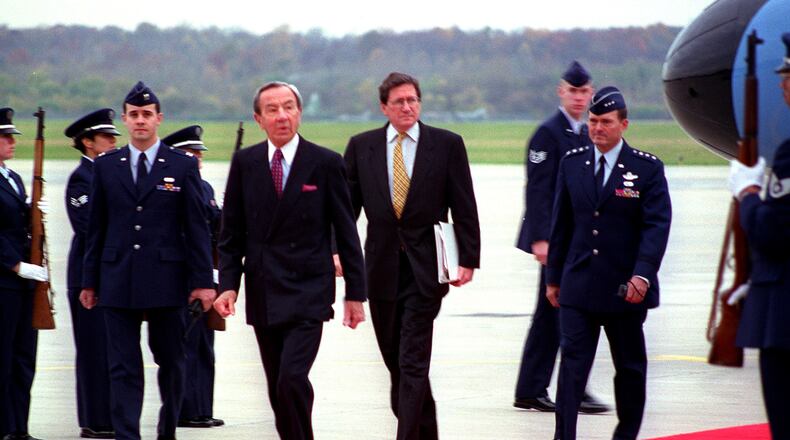The legislation passed the House last year.
The bill, if passed by the House and Senate and signed into law, would confirm a “unified, sovereign, and multiethnic” Bosnia and impose sanctions against “those who undermine the Dayton Accords and Bosnian democratic institutions.”
It would also encourage European sanctions of Milorad Dodik, a Bosnian Serb separatist leader sworn in as president of Bosnia’s Serb-run region.
“As the mayor of Dayton during the historic Dayton Peace Accords in 1995, I understand the importance of diplomacy and constructive engagement in resolving conflicts,” Turner said in a statement. “Achieving peace is not easy, but it is something that America should support as an advocate for international order and the rule of law. However, peace agreements are only sustainable if all parties are willing to come to the table.”
In a supplemental statement, the legislators pointed to the influence of Dodik, the Serb leader of Bosnia’s tripartite government.
The statement said Dodik and politicians like him “have precipitated a crisis in Bosnia by calling for a boycott of BiH (Bosnia and Herzegovina) government institutions and setting up alternate, Serb-led institutions. Dodik has threatened secession for years, but these actions have put BiH’s future as a unified state in doubt.”
Russia is encouraging these destabilizing forces, the statement adds.
Hammered out in private sessions at Wright-Patterson Air Force Base’s Hope Hotel, the Dayton Peace Accords (sometimes called the “Dayton Agreement”) were signed just before Thanksgiving 1995 by the presidents of three states — Bosnia, Croatia and Serbia, ending a war in Bosnia.
The agreement preserved Bosnia as a single state made up of two parts, the Bosniak-Croat federation and the Bosnian Serb Republic, with Sarajevo remaining as a capital city.
Wright-Patterson was chosen as a location for the three weeks of talks in part because it was secure and because U.S. leaders hoped participants would be inclined to focus on the business at hand there.
“We will not allow corrupt politicians in Bosnia, often backed by the Putin regime, to threaten the Dayton Accords and make life that much more dangerous for all those in the region,” Wagner said in the joint statement. “This bill will ensure we impose sanctions on these destabilizing criminals and deter bad actors, including Russia, from gaining a foothold in the region.”
About the Author



